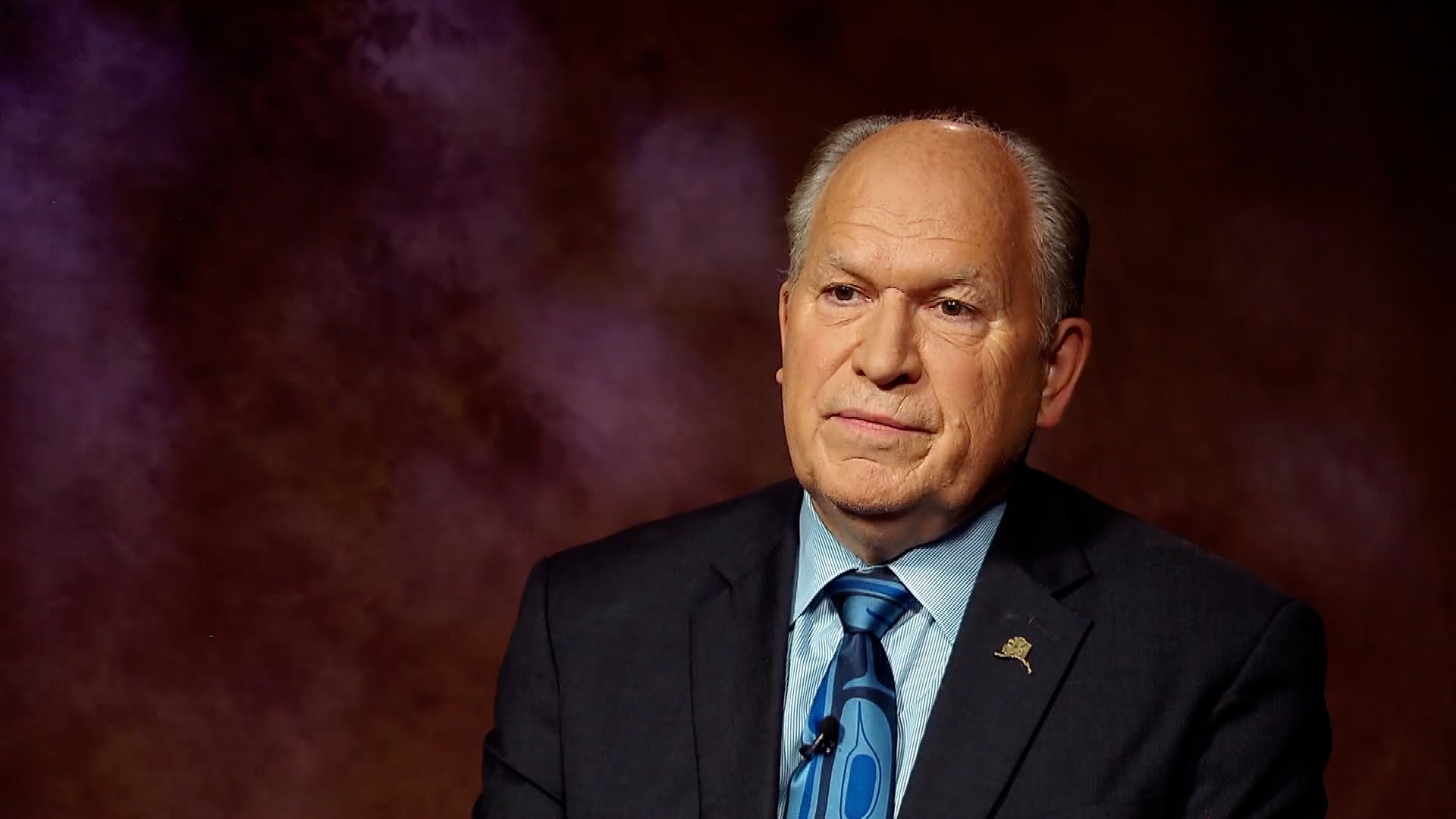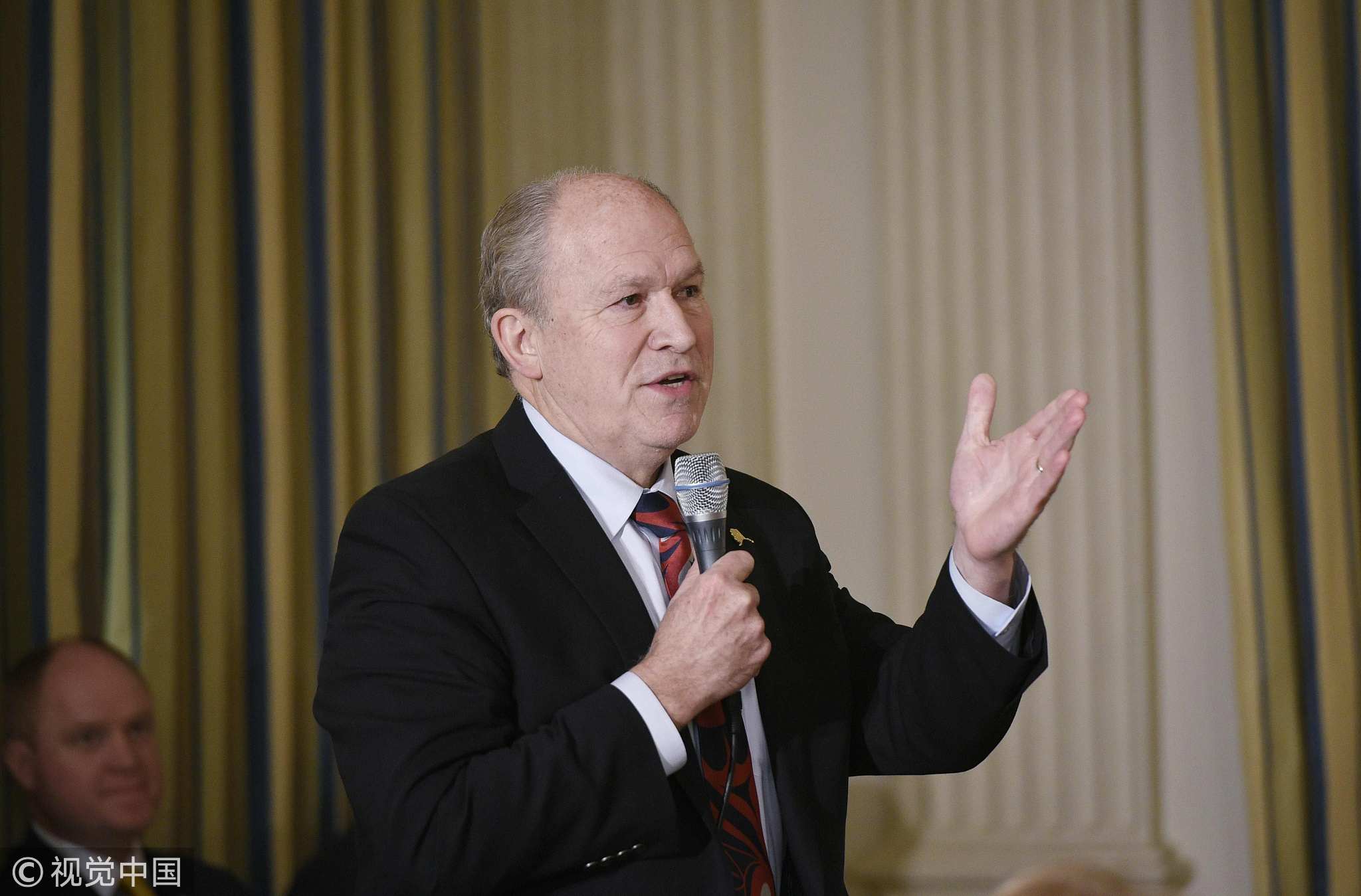
Opinions
10:01, 28-Jun-2018
The Heat: Alaska, part of solution to ease Sino-US conflicts
Updated
09:18, 01-Jul-2018
CGTN's The Heat
01:24

Next week, the Trump administration is set to hit China with additional 25 percent tariffs on 34 billion US dollars worth of Chinese products, and China said it will reciprocate matching tariffs on the same amount of American goods.
The retaliatory measures will take effect on July 6, the same day the US duties kick in. China’s Ministry of Commerce accused the United States of “extreme pressure” and said that China will have no choice but to retaliate.
The trade conflict between the world’s two largest economies is escalating, and the previous agreements seem to be off the negotiating table.
White House economic adviser Peter Navarro said that China has “much more to lose” in the dispute, noting that China has exported far more than it imported from the United States last year.
However, chances are that not all US industries would benefit from the president’s trade policy, and the trade fight might end up hurting both sides.
States that own close ties to the Chinese market have already smelled the tension in the air. China is the biggest export destination for Alaska. Last year alone, China purchased more than 1.3 billion US dollars worth of goods, primarily seafood, from the state.
Alaska Governor Bill Walker said that they are taking the tariffs seriously, seeking ways to minimize the collateral damage from the escalating trade war.
“We’re looking at what we can do to help soften that,” Walker said. “And hopefully eliminate the dispute that is going on right now. I’m certainly talking with the Trump administration and we have relationship in China with what we’ve been doing on our trade.”
Walker said that recently some of the Alaskan businesses, including fisheries, tourism and many other areas, were back from "Opportunity Alaska," a trade and investment mission to China to look for potential trade opportunities. The trip has again confirmed what the governor already knew.

Alaska Governor Bill Walker was asking a question at the White House in Washington, DC on February 22, 2016./ VCG Photo
Alaska Governor Bill Walker was asking a question at the White House in Washington, DC on February 22, 2016./ VCG Photo
“There’s a tremendous opportunity for both China and Alaska,” Walker said. “We have products that they would very much like, and we very much like to have a market for our product, so it’s a good fit.”
Not a fan of having a trade war, Gov. Walker believed that it would be wiser to solve the problem in a less aggressive way. He said the country needs more products going from the United States to China. For example, Alaska’s natural resources, such as liquefied natural gas, could contribute to narrowing the US trade gap with China.
China Petrochemical Corp., known as Sinopec Group, signed a joint development agreement that was worth as much as 250 billion US dollars with Alaska Gasoline Development Corp. in November 2017, to pipe gas from Alaska’s northern shore to the South and ship it to China.
Today, the project is still in progress. China needs more gas from Alaska, and Walker considers that as part of the solution to the trade dispute.
“I think this could be a catalyst to sort of help bring this (the trade conflict) to a close,” Walker said. “We need to ship more products to China. I don’t think we’re going to send necessarily electronic, but we certainly can send raw materials and natural resources. If we were a separate country, Alaska would be the eighth richest resource country in the world. We are a natural fit to sort of help break that deadlock."
Walker said China has sympathy for the problems that Alaska is facing right now, and China is very interested in the energy project as it would help the country reduce the emission by 80 million tons per year in China.
He restated that projects like the one with Sinopec are going to bring down the trade deficit, and that is exactly what the U.S. should be focusing on.
“Using Alaska as an example, if we in Alaska can start bringing down the trade deficit, then other states will as well,” Walker said. “There are about 1,500 transactions or deals between China and the 50 US states. Alaska represents three of those 1,500 deals, so obviously we want to increase the number of deals we have with China, but other states can as well.”
The Heat with Anand Naidoo is a 30-minute political talk show on CGTN. It airs weekdays at 7:00 a.m. BJT and 7:00 p.m. Eastern in the United States.

SITEMAP
Copyright © 2018 CGTN. Beijing ICP prepared NO.16065310-3
Copyright © 2018 CGTN. Beijing ICP prepared NO.16065310-3